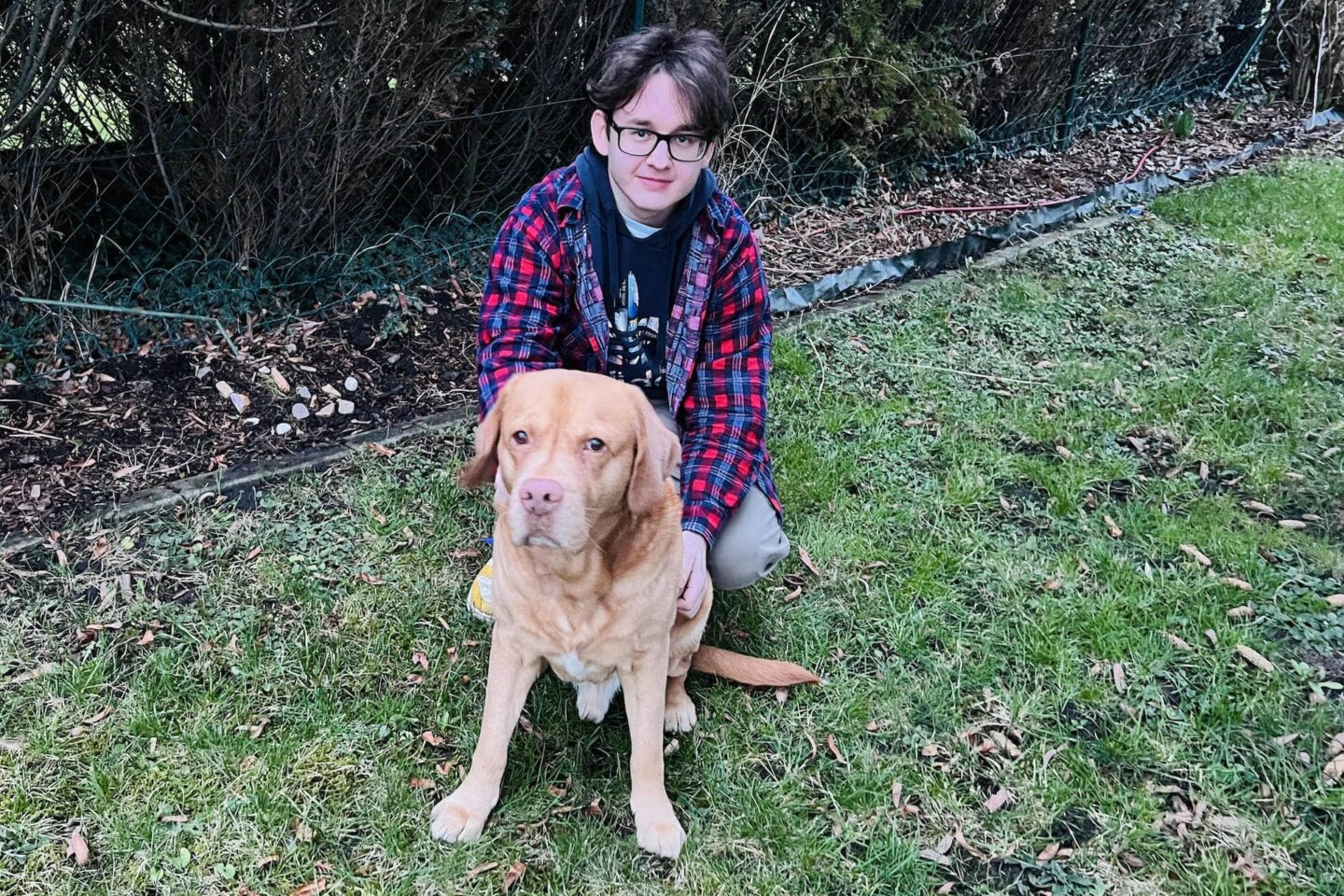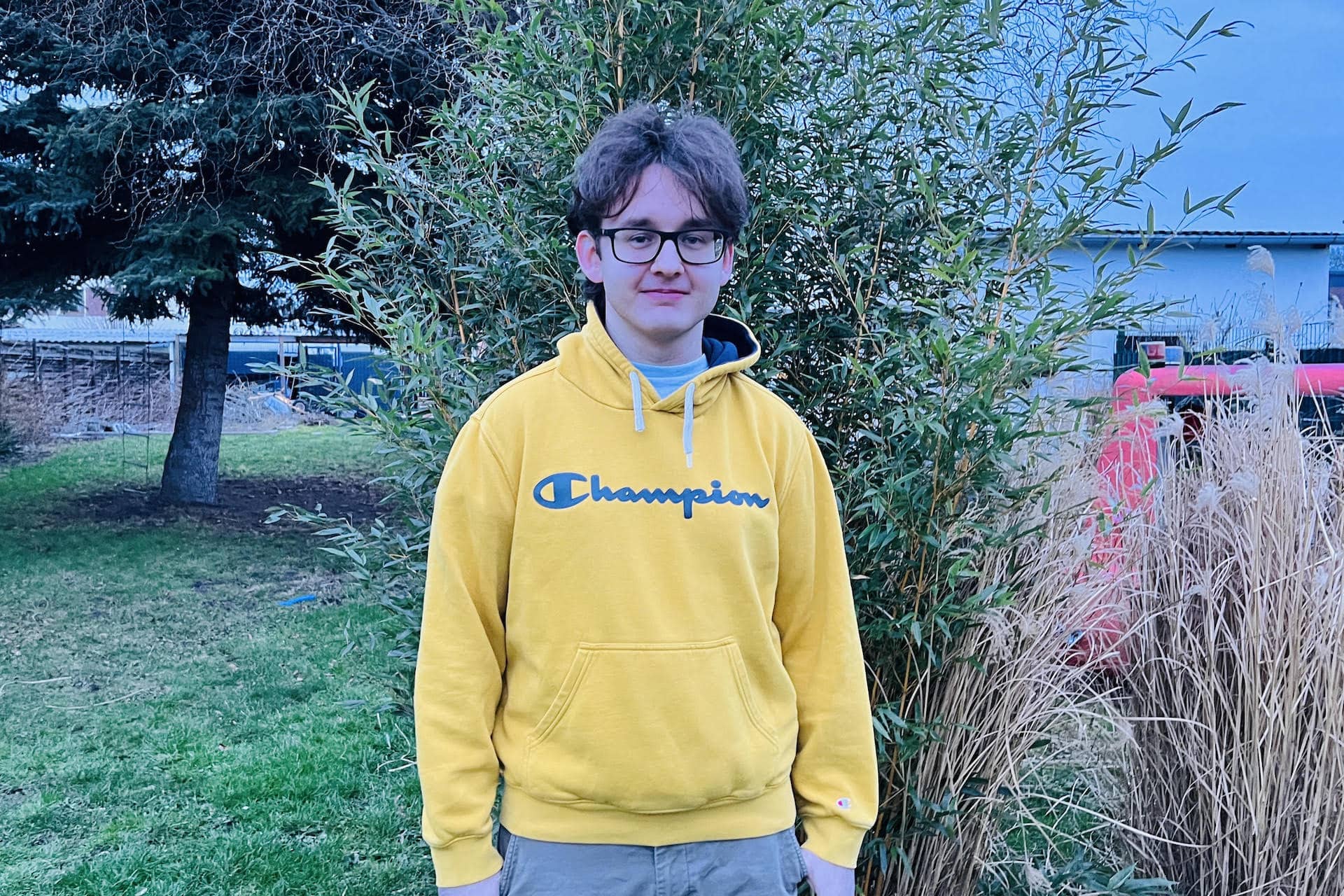Erasmus internship abroad: the story of a German
Estonia is a small country on the Baltic Sea, yet tales of its remarkable technological advances have even reached Germany. In this tiny country, so much can be done online, from setting up a business to voting in elections. Before I became closely acquainted with Estonia, I and many of my family members had used applications and services developed in Estonia. For example, I had used the Wise banking service and my father had invested in Bondora, not to mention the Bolt car park in Berlin. When I met a wonderful girl from Estonia, I decided to do my internship abroad in her country, at Transly Translation Agency. This was the beginning of my journey into Estonian.
Early steps of language learning
I am a second-year student of Technical Communication and Translation Studies at the Magdeburg-Stendal University in Germany. Before starting my internship in September last year, I spent a month holidaying in Estonia and immersing myself in the local life from Setomaa to Hiiumaa. Around that time, I began to lay the foundations of my language skills: I learnt the verb endings and basic vocabulary, as well as a smattering of other essentials. I also took my first steps in using the 14 declensions, and, more often than not, these steps led me in the wrong direction. The use of declensions made me experience the Dunning-Kruger effect: the more I delved into them, the more I realised how little I understood. There are many exceptions, and many declensions are used differently than in German in a similar situation. But now that I’ve had a taste of the language, I’m no longer intimidated by the multitude of declensions and strange words like uuskasutuskeskus (‘re-use centre’).
I started my internship at the end of September, also gaining my first experience in English-German translation. I gathered many new impressions – not only about living in Estonia, but also about the work. I enjoyed it a lot. The internship took place in the company’s office, surrounded by colleagues, the majority of whom were Estonian. At work, they addressed me in English, but at our weekly team lunches I communicated with everyone in Estonian. I was also able to practise my Estonian at our team events. This initial phase of my language learning journey was particularly motivating, as I started making logical connections between the words and expressing myself more confidently in the new language.
I’m making progress!
Transly Translation Agency quickly arranged an individual Estonian course for me, which is still ongoing and has been of immense help in my learning process. Thanks to this course, I have been able to tackle the big grammar question marks that seem to hover over my head on a weekly basis. The one-to-one classes take place twice a week, focusing on translation, grammar exercises, and conversation. My lovely teacher also provides valuable advice on resources that I can use on my own. For example, she introduced me to Speakly, a language-learning platform created by Estonians, and recommended watching the classic Estonian TV series Õnne 13. In my girlfriend’s family, I had heard various jokes about Õnne 13. And indeed – the slow-paced dialogue gives you the impression that the series is tailored for language learners.

The warm hospitality of my girlfriend’s family provided me with the chance to join various family celebrations, plunging me headfirst into the language-learning experience. I had no choice but to try and speak broken Estonian with my girlfriend’s grandparents. Everyone is the architect of their own fortune, but sometimes it does take a little push to step out of your comfort zone – or at least try. Many language learners have talked about that one point where something suddenly clicks and after that, it is much easier to understand the language. For me, this moment came after Christmas. It was then that I noticed that I felt much more confident in using Estonian, and that I had more and more courage to speak and to make mistakes. For example, I could now go to the post office and run my errands on my own. Overall, I felt that I could manage many social situations in Estonian that had previously been beyond my reach.
Difficulties and methodology
Mastering the Estonian intonation has proven to be unexpectedly challenging for me. I think it makes Estonian sound very nice, but I find it difficult to imitate, so I often sound rather robotic when I speak.
I’m a fan of language-learning experts such as Steve Kaufmann, and I’ve applied his methods, particularly the concept of comprehensible input, to my Estonian learning journey. According to this theory, language acquisition is more effective if the learner reads and listens to texts that are slightly above their own language level. For example, kids’ books are a good way to learn Estonian, but there are also useful textbooks available.
Interesting observations about Estonian
I was fascinated to see quite a few words in Estonian that have been borrowed from German and other Germanic languages. Many of the loan words can be found in the culinary world, such as Estonian peekon vs German Bacon (‘bacon’), sink vs Schinken (‘ham’), sibul vs Zwiebel (‘onion’) and pirn vs Birne (‘pear’). In other areas, reis vs Reise (‘trip’), kleit vs Kleid (‘dress’) and närvis vs Nervös (‘nervous’) come to mind. For the last word, only the stem is shared, the similar ending is accidental.
However, one of my favourite words in Estonian is kulp (‘ladle’). To me, it sounds onomatopoeic, because it reminds me of the sound you hear when you push a ladle underwater. My other favourite word is nunnu (‘cute’), which does sound very cute because of the long palatalised n.
Final words
I’ve been learning Estonian for five months now. Among the languages I have learned, it has proven to be the most challenging. But it doesn’t faze me, and I’m all the happier if I can get a particularly complex sentence right. I can already express myself in quite a lot of situations (albeit with difficulty) and share my thoughts. Saying that I understand the language would be an exaggeration, but I am constantly noticing my progress. In Germany, my girlfriend and I tend to use Estonian as a secret language. There’s a good chance that no one else around us speaks it, so we can talk openly about personal topics!
At the beginning of my internship, I only knew the most common phrases in Estonian. But now, after five months of consistent effort, I’ve got to the point where I can converse quite well. Of course, people often have to repeat what they said to me or rephrase it in simpler terms. However, this should not discourage language learning, even if the language is considered difficult. Estonians are very patient in conversation and are always happy to see a foreigner trying to learn their language. Grammatical mistakes are overlooked and words patiently repeated. I really do like learning Estonian. It’s been quite a challenge for me, but all the more reason to celebrate my progress.
